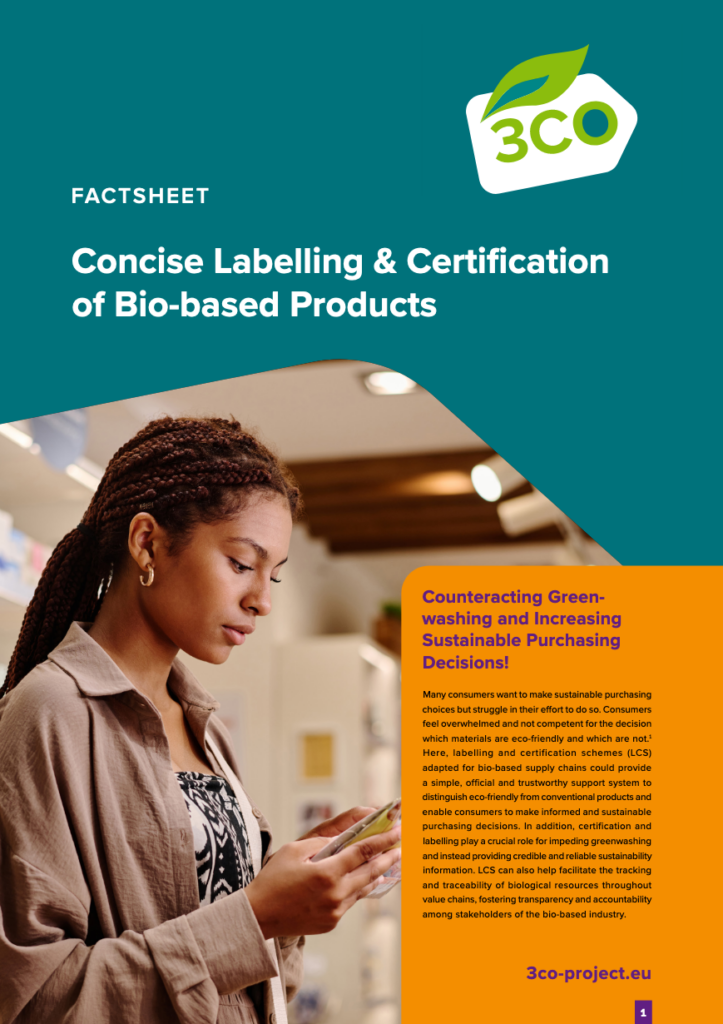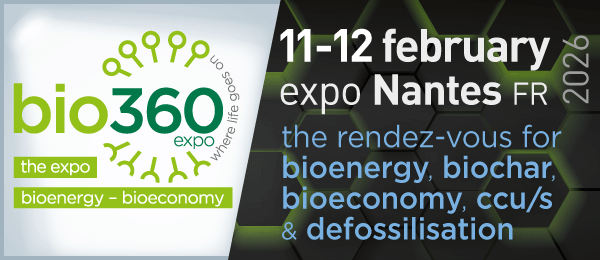Consumers often want to buy sustainably but struggle to identify which products are truly eco-friendly. Many feel overwhelmed by vague or misleading claims. Clear labelling and certification schemes (LCS) tailored to bio-based products can help by providing standardised, reliable information that distinguishes sustainable products from conventional ones.
LCS are crucial in preventing greenwashing, where companies falsely claim environmental benefits of their products. They offer transparency, helping consumers make informed decisions and ensuring traceability of bio-based materials throughout the supply chain.
Challenges that impact the uptake of bio-based products by consumers include:
- Green Skepticism: Consumers are often unsure or lack the knowledge whether materials and products are really bio-based, safe, credible and/or environmentally friendly. Also, bio-based products are often incorrectly associated with lower quality.
- Greenwashing: Many environmental claims lack verifiable evidence, leading to confusion and loss of consumer trust.
- Low Availability: Consumers might be prevented from buying sustainably if bio-based products are not available, which can be due to low availability of biological feedstock, value-chain challenges or inadequate infrastructure for the delivery of products.
- Willingness to pay: The often higher price for sustainable products might reduce the consumers’ willingness to pay for bio-based products.
- Suitability of Existing LCS: Existing LCS mostly use indicators and criteria that have been developed for traditional feedstocks (e.g. wood) and their applications. LCS development for novel bio-based products has been hampered by their limited market volume. Often, certifications do not sufficiently reflect the environmental and sustainability benefits.
- Lack of Clarity: Current labels are often unclear and do not provide detailed sustainability information.
Here, 3-CO (Concise Consumer Communication through Robust Labels for Biobased Systems) steps in order to support sustainable consumption and improve consumer behaviour through smart digital solutions and guidelines for Labelling and Certification Scheme holders. 3-CO will therefore develop and demonstrate the viability of a supportive framework for LCS on Business-to-Consumers (B2C) communication for industrial bio-based products, and will publish guidelines for label development. he recommendations and guidelines will be verified in ten different value chains, which were selected based on their relevance.
Read the full factsheet here: https://3co-project.eu/wp-content/uploads/2024/05/24-05-23_3co-factsheet_en_2.pdf
Get more information on 3-CO the project’s website: https://3co-project.eu/
Source
nova-Institute, original text, 2024-09-25.
Supplier
Horizon 2020
nova-Institut GmbH
Share
Renewable Carbon News – Daily Newsletter
Subscribe to our daily email newsletter – the world's leading newsletter on renewable materials and chemicals












